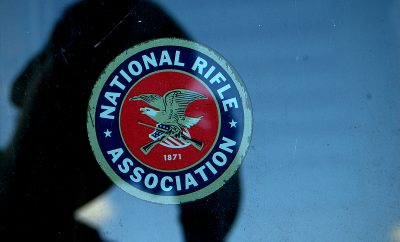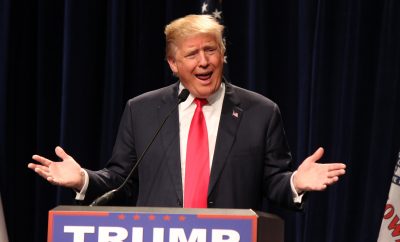 "Guns etc." courtesy of [Kevin Dooley via Flickr]
"Guns etc." courtesy of [Kevin Dooley via Flickr]
Crime
Could Mass Shootings Lead to Looser Gun Laws?
Mass shootings in the United States generate intense media, public, and political attention, often leading to strong policy responses as well. But according to a recent working paper, those responses aren’t exactly what you might expect. Professors at Harvard Business School researched the aftermath of mass shootings and found that while these events did often lead to a significant increase in gun legislation, those efforts actually tend to make guns more available to the public. Here’s what you need to know about the new research:
The Main Takeaways
While most attempts to study gun legislation focus on the efforts’ effects on the sale and use of guns, these researchers sought to understand what prompts changes in gun laws. Professors Michael Luca, Deepak Malhotra, and Christopher Poliquin highlight three primary findings from their research:
- Mass shootings are salient public events that lead to strong policy responses from state legislatures.
- Despite the relatively small number of people who die from mass shootings–by their measure, fewer than 100 people die each year due to public mass shootings while approximately 30,000 people die from gun violence each year–such events have a disproportionate effect on gun legislation.
- They find, surprisingly, that mass shootings lead to a loosening of state gun laws. This is largely because both parties respond to gun violence in different ways and legislatures controlled by Republicans are more likely to enact new gun laws after a mass shooting.
The researchers find that a single mass shooting corresponds with a 15 percent increase in gun legislation introduced the following year. They note in the paper, “A single mass shooting leads to an approximately 15 percent increase in the number of firearm bills introduced within a state in the year after a mass shooting.” That increase is particularly significant in the context of gun-related deaths. Under their measure of mass shootings, these incidents lead to about 0.3 percent of all gun deaths but prompt a significant amount of legislation.
While it may not be surprising that high-profile events lead to political responses, the extent of that response may be. According to the researchers:
Our estimates suggest that the per-death impact of mass shootings on bills introduced is about 66 times as large as the impact of gun homicides in non-mass shooting incidents.
Policy Responses
Another important takeaway is that these events tend to spark strong responses from policymakers, but the content of those responses–whether they are proposals to strengthen or loosen gun control laws–largely depends on the party in control of the state legislature. They find that in Republican-controlled legislatures, mass shootings lead to a 75 percent increase in laws that loosen gun restrictions. On the other hand, they found no statistically significant effect on enacted laws when Democrats control the legislature.
In their research, the authors looked at several reports and databases of mass shootings in combination with the LexisNexis bill tracking service in order to determine the legislative response to mass shootings. After identifying bills proposed in response to mass shootings, they coded each bill in terms of whether they tightened or loosened gun laws. To isolate incidents that are generally considered mass shootings, they only looked at shootings that are public events, with three or more deaths, and where the victims are not related to the shooter. They also controlled for a wide range of variables to try and find a causal connection between these shootings and enacted laws.
Looking at state government responses to these events provides some important, and often overlooked, insight into how mass shootings shape gun policy. We might assume that when tragic events like these occur and generate a large amount of attention, policymakers would respond with laws that restrict gun sales. While that does happen, when you look at bills that make it all the way into law, they tend to have the opposite effect.
Party Control Matters
Because Republicans generally do not believe that stronger gun control will reduce mass shootings, they instead respond to these events with laws that correspond to their underlying ideological views. When looking at laws that were actually enacted, the evidence suggests that Republicans are more likely to put their policy preferences into effect. While the researchers do not attempt to explain why in their paper, they find that Democrat-controlled legislatures do not lead to a significant increase in enacted laws that restrict gun sales.
Gun control is one of the most polarizing issues in American politics, with Republicans and Democrats strongly split on the appropriate level of restrictions for gun buyers. This split explains, in part, why politics largely determines the response to these events. Put simply, these events tend to drive policymakers to push for laws that their existing political beliefs support; and Republican-controlled legislatures are considerably more likely to put those laws into effect.
One of the primary problems here–and an important driver of political polarization between the two parties–is a lack of consensus on effective policies to prevent gun violence. Democrats believe that additional restrictions and safeguards to prevent guns from falling into the wrong hands are necessary. Meanwhile, Republicans are skeptical of the effectiveness of these efforts and argue that people should be entitled to protect themselves from danger. As a result, policymakers respond to mass shootings based on what they already hold to be true and not necessarily with evidenced-based proposals to reduce gun violence.
What’s Next?
This research also highlights some important questions for policymaking going forward. In the paper, the authors write:
We find that even random and infrequent events that account for a relatively small portion of total societal harm in a domain might nonetheless be crucial levers for policy consideration and change.
Although they find that the responses to mass shootings are largely based on existing ideology, it’s worth questioning whether events–which account for about 0.3 percent of all gun deaths–should have such an outsized influence.
The important takeaway from all of this isn’t necessarily that public mass shootings lead to looser gun laws, but why exactly that happens. In the United States, American citizens and their elected officials are far from consensus on what the best response to gun violence should be. While research suggests we should treat gun violence as a public health issue–much like tobacco or automobile accidents–agreement on specific policies can be difficult to come by and the solutions are often more complicated than simply making it harder to buy guns.








Comments